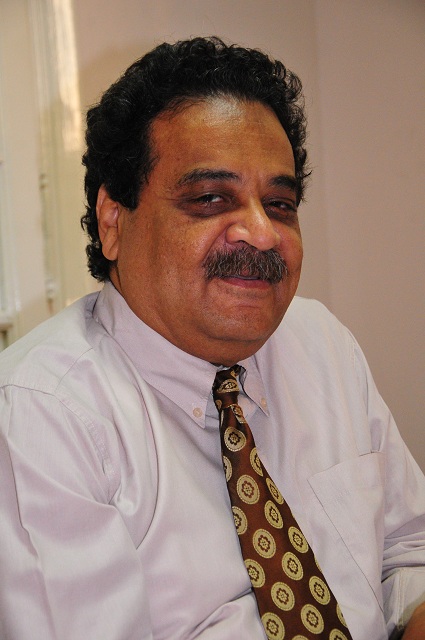By Sharif Omar
It was in September 2003 that the meaning of the Wall that Israel had constructed between me and my land began to sink in. Despite our refusal to apply for permission to cross the Wall, Israeli officials had gone ahead and issued permits to some of the farmers in Jayyous, where I live.
There were 650 permits issued for our village, and my name was not among them.
Before the Wall, I went to my farm whenever I wanted, often sleeping there during the week in a simple agricultural house I had constructed there. Buyers would come to purchase our olives, citrus, loquats, avocados, guava and almonds, straight from the fields. And it was no problem finding workers to help harvest the produce and tend the fields.
Now, despite years of fighting Israel in court, frequent demonstrations, and actually achieving a ruling by the International Court of Justice calling for the dismantling of the Wall, we remain restricted from our land.
The Wall cut off some 8,600 dunams from Jayyous, about 75 to 90 percent of its agricultural land, and six water wells. Now we are forced to share with our neighbors in Azzun from a well located between the two villages, which covers less than half of our needs.
I have managed to obtain a six-month permit to access my 175 dunams, but prior to this I was only getting a permit every three months — sometimes waiting for weeks in between. The permit says I can be on my land from five am to seven pm, but the gate in the Wall is only opened three times a day — 6:45 to 7:15 in the morning, 1:45 to 2:15 in the afternoon, and from 5 to 5:30 in the evening. If you are late, it is a problem. Often the soldiers are late and you have to wait.
Finally, I and my wife are the only members of my family granted permits. She is 65 years old, with a bad back, and I am 69 — how can she help me? It’s nice that she can sometimes come to the fields and we can have breakfast together, but I would really like for my son, who studied agriculture in Italy, to be able to help a few days a week.
Finding workers has become really difficult. The Israelis say I should get permits for 15 workers, but that has not materialized. Sometimes, other farmers who don’t have a lot of land will come and help part of the week.
And, of course, because buyers can’t come to the fields beyond the Wall, we sell our produce in the market near Nablus at a ten percent mark-up for transport and middleman costs.
Israelis may think that the Wall has served them well, since suicide bombings in Israel stopped not long after its construction. We oppose these attacks; that was something we agreed on even in 1981, when the settlement of Tsufin ate up 2,000 dunams of our land.
And while it is important to say that Palestinians have the right to resist occupation through any means, I believe the majority of Palestinians began to oppose the attacks inside Israel because they didn’t produce the desired results. It is not accurate to say that the Wall stopped these attacks. Anyone who wants to carry out an operation can cut the fence and enter. Even now, when the soldiers aren’t at the gate, the young people are able to open its doors. If they really wanted to enter Israel, they could. And now in the time of rockets, does a Wall really provide any protection?
If the goal of building the Wall was security, why didn’t they build it on the internationally-recognized armistice line between Israel and the West Bank? Why did they cut six kilometers inside the line into Jayyous? They did this because the real issue is not security, it is the desire for more land and water.
I testified at the International Court of Justice at The Hague, and I was pleased with its ruling. But that was not the real success, in my view. The real success in Jayyous has been the community solidarity built up around this issue. We succeeded in changing the course of the Wall to restore 2,488 dunams to Jayyous and Azzoun. In September 2009, the Israel High Court ruled that the Wall be moved to return our land, and about six weeks ago, an army captain came and told us that the decision will be implemented in June 2012. This is a direct result of the popular resistance in this village.
We fought in court, but we also demonstrated. One day they would cut the fence, the next day they would have activities, one day they would throw a Molotov cocktail, the next day they would burn tires.
Still, I remember when an Israeli journalist came and asked me about it. I said this court ruling was not a victory — victory will come when the Wall is gone.
Sharif Omar is a farmer and leader in the Land Defense Committee in the northern West Bank village of Jayyous. This commentary is published by DAILY NEWS EGYPT in collaboration with bitterlemons.org

